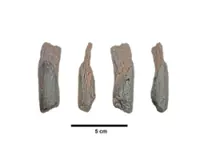SYRIA’s new rulers are investigating the billion-dollar corporate empires of ousted president Bashar al-Assad’s allies, engaging in talks with some of the country’s most powerful tycoons in what they describe as a campaign to root out corruption and illegal activity.
Since seizing power in December, the Hayat Tahrir al-Sham (HTS) rebel group, now governing Syria, has pledged to rebuild the nation after 13 years of civil war and dismantle the highly centralised and corrupt economic system that allowed Assad’s inner circle to thrive.





